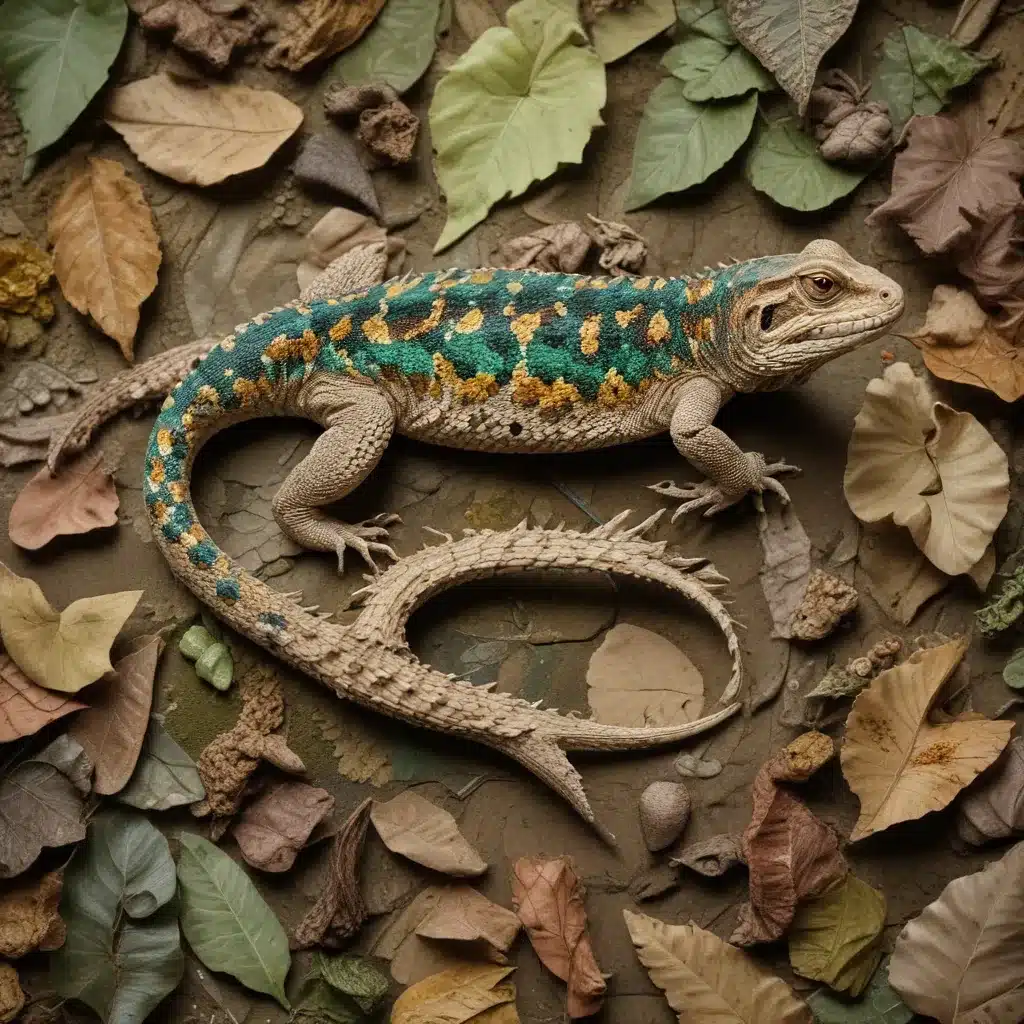
Reptile Husbandry: Creating the Ideal Environment
Keeping exotic reptiles as pets requires a thorough understanding of their unique care needs. Providing the right habitat, temperature, humidity, and enrichment is essential for the health and wellbeing of these remarkable creatures.
When setting up a reptile enclosure, it’s crucial to mimic the species’ natural environment as closely as possible. This may involve installing proper lighting, heating sources, and substrate that replicates their native habitat. Attention to detail is key, as even minor variations in environmental conditions can have a significant impact on a reptile’s physiology and behavior.
Lighting is a critical component of reptile husbandry. Depending on the species, reptiles may require a combination of UVA, UVB, and visible light to support their biological processes, from basking to vitamin D3 synthesis. Carefully researching the specific lighting needs of each reptile species is essential to ensure their long-term health and vitality.
Temperature regulation is another crucial aspect of reptile care. Reptiles are ectothermic, meaning they rely on external heat sources to regulate their body temperature. Providing the right temperature gradients, from basking zones to cooler areas, allows them to thermoregulate and engage in natural behaviors.
Humidity levels also play a vital role in a reptile’s well-being. Different species thrive in varying degrees of humidity, ranging from arid desert environments to tropical rainforests. Monitoring and adjusting humidity levels accordingly is necessary to prevent respiratory issues and maintain skin health.
Substrate selection is equally important, as it not only provides a comfortable surface for the reptile but also helps maintain appropriate humidity levels. From cypress mulch to sphagnum moss, the substrate should be chosen based on the specific needs of the species.
In addition to the physical environment, enrichment is essential for reptile well-being. Providing hiding spots, branches for climbing, and other stimuli can encourage natural behaviors and reduce stress. Captive-bred reptiles, in particular, may benefit from increased environmental complexity to mimic their wild counterparts.
Reptile Breeding: Propagating Unique Species
Responsible reptile breeding is a complex process that requires careful planning and execution. Successful breeding programs not only contribute to the conservation of endangered species but also provide a sustainable source of captive-bred animals for the exotic pet trade.
One of the key factors in successful reptile breeding is understanding the species’ natural reproductive cycles. This includes knowing the appropriate breeding seasons, courtship behaviors, and gestation or incubation periods. Carefully monitoring environmental cues, such as temperature and photoperiod, can help trigger the desired breeding behaviors.
Choosing genetically diverse breeding pairs is another crucial aspect of reptile breeding. Maintaining genetic diversity helps prevent the accumulation of harmful recessive traits and ensures the long-term viability of captive populations. Responsible breeders often collaborate with other facilities to introduce new genetics and avoid inbreeding.
Proper nutrition and supplementation are also essential for successful reptile breeding. Providing a balanced diet rich in essential vitamins, minerals, and proteins can support optimal reproductive health and ensure the proper development of offspring.
Incubation and hatching protocols are also critical in reptile breeding. Factors such as temperature, humidity, and substrate can significantly impact the success of egg incubation and hatchling survival. Experienced breeders closely monitor these parameters to ensure the healthy development of the next generation.
After hatching, neonatal reptiles require specialized care and feeding to thrive. Proper husbandry, including appropriate housing, temperature, and feeding schedules, is necessary to give these young reptiles the best start in life.
Responsible Reptile Sales: Navigating Legal Requirements
The sale of exotic reptiles is heavily regulated to ensure the welfare of these animals and prevent the spread of invasive species. Responsible breeders and sellers must navigate a complex web of local, state, and federal laws to operate legally and ethically.
At the federal level, the Lacey Act and the Convention on International Trade in Endangered Species of Wild Fauna and Flora (CITES) provide a framework for regulating the import, export, and interstate transport of certain reptile species. Breeders and sellers must carefully research and comply with these regulations to avoid legal penalties.
Many states and local jurisdictions also have their own laws governing the possession, sale, and transport of exotic reptiles. These may include requirements for permits, licenses, and health certificates, as well as restrictions on the types of species that can be sold.
Responsible reptile sellers must also be mindful of the potential for their animals to become invasive in new environments. Some species, if released or escaped, can pose a threat to local ecosystems and native wildlife. Ensuring that buyers are educated on proper containment and care is crucial to mitigate this risk.
In addition to legal compliance, ethical reptile sales prioritize the health and welfare of the animals. Reputable breeders and sellers should provide detailed care information, offer a robust return policy, and ensure that buyers are prepared to properly care for the reptile they are purchasing.
Navigating the legal and ethical landscape of reptile sales can be challenging, but it is essential for the long-term sustainability of the exotic pet trade. By working closely with regulatory agencies, collaborating with other industry professionals, and prioritizing animal welfare, responsible reptile sellers can contribute to the responsible enjoyment and conservation of these remarkable creatures.
Conclusion
Exotic reptiles captivate the hearts and imaginations of enthusiasts worldwide, and their care, breeding, and responsible sale are critical to their continued presence in our lives. By understanding the nuances of reptile husbandry, embracing ethical breeding practices, and navigating the legal requirements for reptile sales, we can ensure that these unique and often endangered species continue to thrive, both in captivity and in the wild.
Whether you are a seasoned reptile enthusiast or someone new to the world of exotic pets, the information provided in this article can serve as a valuable resource for creating the perfect environment, propagating rare species, and participating in the responsible sale of these remarkable creatures. By embracing our roles as stewards of these remarkable reptiles, we can collectively contribute to their long-term conservation and the continued appreciation of their grandeur.


